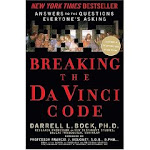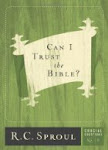isbn #0-8010-1234-1
Well this is going to be one very short book review! As some of you may know, I have been reaidng this book for quite some time and I have finally finished it. It is not that the book is boring or that I disagreed with much of it, but this was a real challenge for me to complete. This is not to say that I intend to get rid of the book, for I found it valuable and will probably refer to it again in the future. The problem, I think, is that Horton's presentation was rather dry. I've read books by Horton before, and this is not something I've encountered in his writings before...so it's sadly ironic that I should find a lack of true passionate writing in a book dedicated to (as the subtitle states) "rediscovering the drama of God-centered worship"!
As with all reviews ever written by anyone, this is my own opinion and it may be that someone else may find the writing filled with zeal! I certainly don't suggest that anyone NOT read this book, for as I've already stated before, it contains valuable information. Also, Horton does excel at bringing complex arguments to the level of a simple reader such as myself. I was able to follow his arguments and overall I found myself agreeing with his critique of what passes for worship in too many churches today.
Another thing that Horton does well in this book is to unapologetically examine the typical components of a service and compare them to what the Bible teaches. Where Horton lost me, through no fault of his own I might add, is when he makes his defense of infant baptism. I say that this is through no fault of his own for he clearly states in his book that he is writing from a Reformed position, whereas I identify myself more as Reformed Baptist, holding to believer's baptism and a premillenial eschatology. One thing I found out through this book is what our Reformed brethren believe about communion. As a baptistic leaning individual, I hold to the idea that communion is done as a remembrance of what Jesus has done for us on the cross. Horton's explanation, however, left me confused as to how exactly the Reformed view of communion differs from the Catholic view. If you are curious, pick up the book and read pages 116-118.
Despite this, (perhaps because of this) I found "A Better Way" to be valuable and thought-provoking. Perhaps I'll wait a few months and pick the book up again to give it a new try. Either way, I recommend it with only slight hesitation. Besided which, our Reformed brethren can never be accused of taking the Word of God lightly, and Horton proves true to this in his book.
Subscribe to:
Post Comments (Atom)





1 comment:
You left me curious about several things! What he thinks about "what passes for worship in too many churches today" and the Communion issue.
Post a Comment